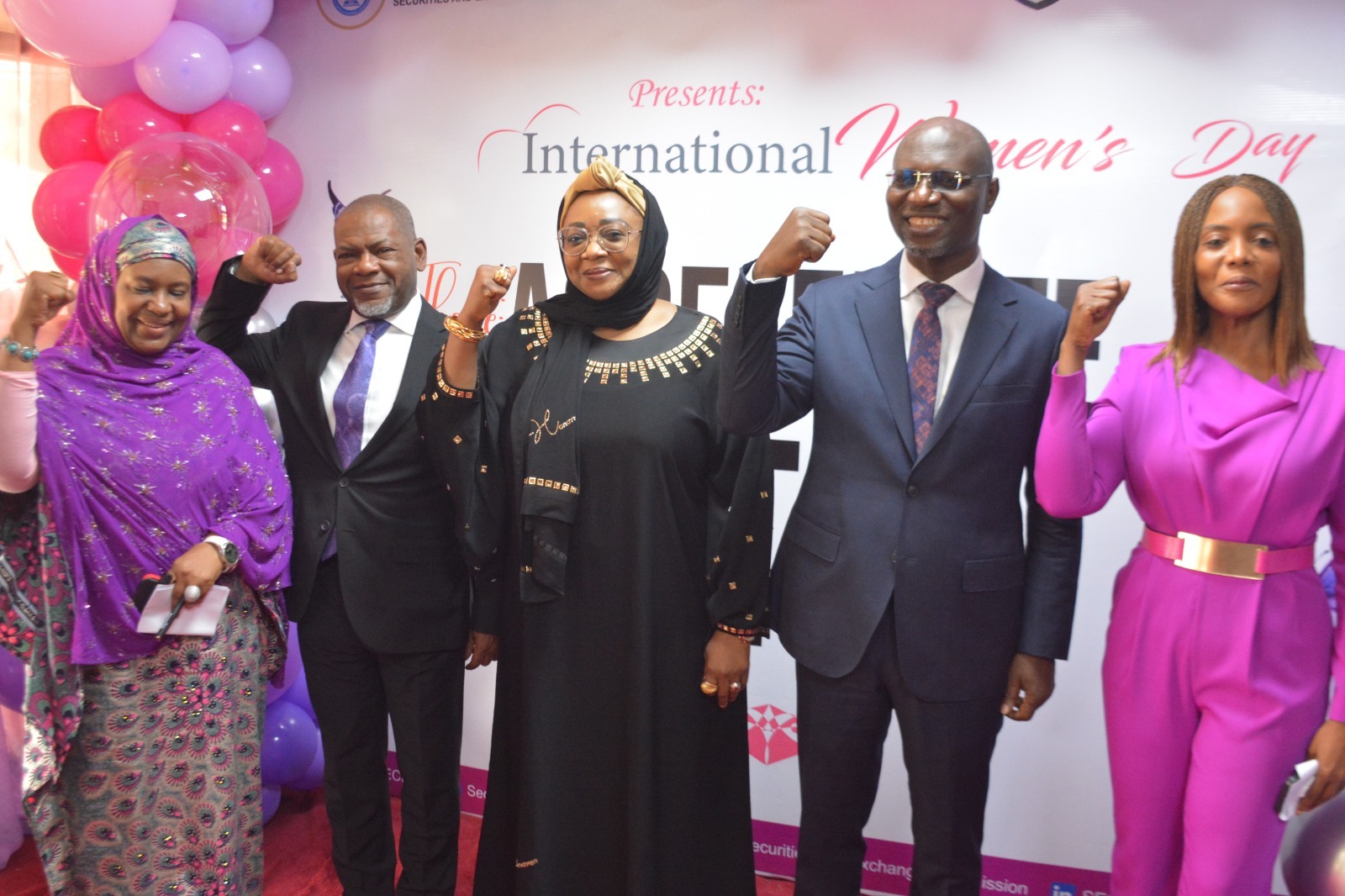The Securities and Exchange Commission (SEC) Dr Emomotimi Agama has advocated for the need to educate and empower women to make informed decisions and create wealth in the capital market.
He made the call at an event to mark the International Women’s Day (IWD) celebration organised by the commission in Abuja .
Agama said that victims of Ponzi schemes in the country were mostly women.
According to him,” women make up the commodities market. We want to make sure that we provide an avenue and a platform where they can sell their produce after producing them.
”I also want to speak about the vulnerabilities of women. Most of the Ponzi schemes that we have in Nigeria, the majority of the victims are women.
”And the reason is very simple, the woman’s heart is very empathic, all that she thinks about is how to resonate her family, help her family, and grow the provisions of her family.
”We must re-empower the women, re-educate them, and we must bring them to the fore of national recognition when it comes to the capital market.”
In the same vein, the Minister of Women Affairs, Hajia Imaan Sulaiman-Ibrahim, charged women to make their impact count through display of excellence.
The minister commended the SEC for financial literacy to the women on finance investment, saying it would help them make better investment decisions.
Sulaiman-Ibrahim said that the programme would also equip them with sound financial knowledge on savings, investments, and wealth creation.
She added that it would provide access to secure financial products tailored to women’s needs and strengthen protections against financial exploitation, particularly through Ponzi schemes and fraudulent investment platforms.
In a lecture, Mrs Hafsat Rufai, the Director, Registration, Exchanges and Market Infrastructure, SEC, said that the capital market played pivotal role in economic development.
She listed some benefits of investing in the capital market to include wealth creation, dividend income, liquidity and tax benefits.
The director called on women to verify and ensure that investment companies were registered by the SEC before patronising them.
Similarly, Mrs Hansatu Adegbite, Chairperson, Association of Nigerian Business Women Network, commended SEC for the financial literacy initiative for women.
”Where poverty prevails, we need to create wealth. One place that women do not look at is the capital market. We need some of these lectures to educate more women.
”Women need to look inward to invest; you must multiply your money. It is time to arise and educate ourselves and take actions,” she said










